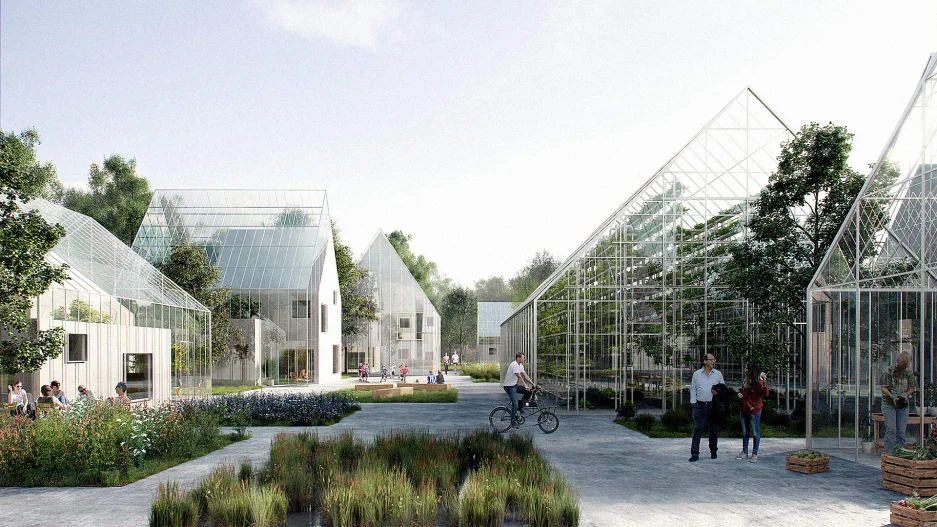“We’re really looking at starting off as the Tesla of eco-villages,” said James Ehrlich of ReGen Villages. In an interview with the Fast Company’s Adele Peters back in 2016, the CEO of the California-based developer was speaking about the network of new closed-loop communities the company was planning to build around the world, designed to be fully self-sufficient, grow their own food, make their own energy, and handle their own waste. And although the construction of the first 100-home village on the outskirts of Almere in the Netherlands was initially delayed due to red tape, with government approval finally obtained this month the much-anticipated site will now soon be taking shape.
The idea behind the sites was based on redefining traditional residential real-estate development. A 20-minute train ride from Amsterdam, the so-called regenerative neighborhood in Almere is slated for a piece of local farmland, where through today’s advanced techniques and technologies, residents will be able to produce more organic food, more clean water and more clean energy with fewer resources, as well as mitigate more waste, than if that land was simply used to grow organic food or assigned to permaculture.
Vertical farms, along with traditional fields and orchards, will supply food to the people living on site. A water storage system will collect rainwater and graywater for redistribution, and the community will produce its own energy using a mixture of geothermal, solar, solar thermal, wind, and biomass. A system for processing food and animal waste will use black soldier flies and aquatic worms to digest the waste and create both chicken and fish feed, and a biogas plant will turn any non-compostable household waste into power and water.
Turning to technology, a “village OS” platform will use AI to simultaneously manage systems for renewable energy, food production, water supply and waste. And with the future firmly in mind, and to encourage walking and biking, the houses haven’t been designed with parking. Shared electric cars will be parked on the perimeter of the neighborhood to keep streets pedestrian friendly.
“We know that governments around the world are in a desperate situation to build probably over a billion new homes,” Ehrlich told Fast Company earlier this week. “It’s a terrible housing crisis.” And as cities become increasingly expensive and crowded, he believes that this type of eco-village development may become more common, also driven by a need to rethink infrastructure so that it works more efficiently, and with a lower environmental footprint.
While ReGen Villages’ focus is currently in Northern Europe, with more projects planned for Sweden, Norway, Denmark and Germany, ultimately, the company hopes to bring a low-cost version of the neighborhoods to developing countries. “We can imagine going to rural India, sub-Saharan Africa,” said Ehrlich. “And [we want] to get there as quickly as we can to provide new kinds of suburbs, new kinds of neighborhoods.”
Related Reading:
Eco Friendly 'Tiny House' Unveiled In NYC
Sustainable Living At Hawaii's First Agrihood




